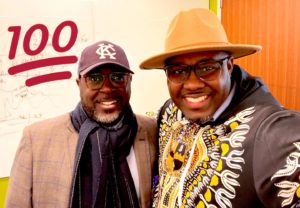‘Poison in healthcare’: Health pros warn DEI medical might be next domino to fall as elites struggle with diversity disasters
Diversity, equity and inclusion (DEI) efforts by American elites continue to deliver poor results for Disney, Sports Illustrated, Boeing, Bud Light and the Ivy League.
But now medical…

Diversity, equity and inclusion (DEI) efforts by American elites continue to deliver poor results for Disney, Sports Illustrated, Boeing, Bud Light and the Ivy League.
But now medical professionals are warning that patient care could be the next DEI domino to fall, as patients are faced with growing risks from training programs that emphasize identity over medical competence.
“People who are given opportunities in healthcare based on the way that they look, or how they identify, without regard to ability, puts patients at risk,” Dr. Hal Scherz, founder of Docs 4 Patient Care, told The Lion. “It is actually unfair to the individuals given these meritless opportunities because it puts them in positions where they are more likely to fail. Such failure could ruin a career if it amounts to serious medical malpractice.”
Scherz is president and managing partner of Georgia Urology, chief of urology at Children’s Healthcare Atlanta and an associate professor of urology at Emory University.
Earlier this month, medical watchdog Do No Harm called on Johns Hopkins Medicine to dismantle its DEI program, calling it “toxic.”
The remarks came after the med center’s DEI head called anyone male, not gay, not anti-Christian, not poor or not speaking a language other than English, the DEI pejorative “privileged.”
“In the United States, privilege is granted to people who have membership in one or more of these social identity groups: White people, able-bodied people, heterosexuals, cisgender people, males, Christians, middle or class people, middle-aged people, and English-speaking people,” said the Johns Hopkins DEI officer, Dr. Sherita H. Golden, in an in-house newsletter in January.
Do No Harm called on Johns Hopkins leaders to “completely eliminate their DEI department and channel those resources toward the primary objective of preparing the next generation of healthcare professionals to give the highest quality care to all patients,” according to Fox.
Golden later apologized for her statements: “I retract and disavow the definition I shared, and I am sorry. I will work to ensure that future messages better reflect our organizational values.”
Do No Harm called the apology “weak,” Fox News reported.
But the harms happening because of DEI are more than just hurt feelings, say medical professionals, including Scherz.
DEI, they say, is likely is having a negative impact on patient care.
Wes Ogilvie, a part-time EMT, said that the number of DEI initiatives at professional development conferences are beginning to cut into hours needed for instruction on how to save patients’ lives.
“The impact on patients is simple–and it’s bad,” said Ogilvie. “If I’m spending an hour on implicit bias training, that’s an hour I’m not spending on airway management. That’s an hour I’m not spending on pharmacology, or the latest updates in cardiology.”
Ogilvie, who works full-time as a Texas attorney, worries those pushing DEI will mandate diversity training for EMTs who want to get or maintain their licenses.
“This DEI training is optional now, but I’ve seen this as a lawyer – you’re going to see it pushed more and more, and if it doesn’t become a mandate to licensure, you’re going to have organizations and departments push it,” he told Do No Harm.
Do No Harm Chairman Dr. Stanley Goldfarb, a nephrologist and former associate dean of the Perelman School of Medicine at the University of Pennsylvania, called DEI an “infection” inside American medicine.
He said the pressure to conform to DEI standards that Ogilvie fears is already operating at the highest levels of medicine, and even led to his termination as editor of one of the most widely-used professional reference books – simply because he’s been outspoken about the dangers to patients when medical providers embrace diversity practices.
Goldfarb, writing at the James G. Martin Center for Academic Renewal, charged that “Medical schools are further undermining standards in the name of diversity, leading to lower-quality students who will provide worse care as physicians.”
Scherz agreed, telling The Lion that DEI is a “poison in healthcare.”
He likened it to a cancerous virus that is spreading because medical leaders have cowered to the left and been unwilling to stand against DEI ideology.
Privately, most physicians hold this view, Scherz told The Lion. But publicly, they do not want to stick their necks out and be ostracized or punished – like Goldfarb – for standing against DEI.
The upshot is that not only are patients put at risk when substandard doctors care for them, but these patients are less apt to trust good doctors who don’t look like them because they have been convinced by the diversity ideology that qualified doctors do not really care about them because of identity differences.
“There is no place for DEI in healthcare,” Scherz concluded. “There is no place for DEI in America. Those who fail to speak against this will get what they deserve, which is mediocrity and not meritocracy.”
Patients may also face growing risks from substandard care – the opposite outcome DEI ideologists claim they want.



